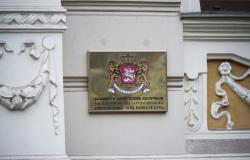This year in the Latvian economy can again be characterized as a time of overcoming difficulties rather than enjoying life and easy growth. However, in one aspect, life is getting easier – the drop in prices of raw materials, which started at the end of last year, is reaching consumers. The favorable effect on consumer prices manifests itself gradually, it is slowed down by expensively purchased stocks, the price policy of companies, in other words, inertia. The rise in production costs pushed consumer prices up very quickly, but the buyers feel the fall in production costs much more gradually. The latest news from commodity markets is no longer so positive.
Will inflation and prices rise?
The outlook for the cost of living has indeed worsened somewhat this year, but there is no cause for great alarm. A brief overview of the main events in raw materials markets, their possible impact on Latvia and prices.
- Events in the oil market have received the most attention this year, especially because they are connected to dramatic geopolitical developments. Starting the year at $76 per barrel, oil prices briefly exceeded $90 and are still close to that level. However, transport costs in Latvia have a much more direct impact on fuel prices than oil prices on stock exchanges – they are not the same thing. The prices of diesel fuel, which is particularly important in our economy, have not changed significantly in the past three months, as oil refiners have had to bear a large part of the cost increase.
- Housing maintenance costs, which are mainly made up of electricity, heat and gas, continue to reflect the overall drop in raw material prices.
- Very important – gas prices fluctuate close to the lowest level since the summer of 2021. European natural gas prices are below EUR 30 per MWh, which is much lower than the level priced in the tariffs for a large number of consumers. Therefore, the correction of heat consumption prices will continue in the next heating season, but the indirect effect in the prices of other goods and services will be reflected in even longer time.
- Weather conditions and the increase in renewable energy capacity continue to reduce electricity prices – thus both a favorable direct effect on consumer costs and an indirect one – through the costs of businesses.
- Wheat prices have increased by a tenth since the beginning of March, but the general trend since the fall of 2022 can still be described as downward. The prices of wheat and other grains have a particularly strong influence on the prices of food in stores – they affect not only the prices of grain products, but also the prices of various livestock products. Since the beginning of last year, there have been no such fluctuations in the markets of the two most important internationally traded dairy products – powder and butter – that could significantly affect the prices of dairy products in stores. So stability is expected in this area.
In terms of events not directly related to commodity prices, durable goods prices will continue to decline gradually. Their prices have historically been stable, or rather declining, determined by technological developments. During the pandemic, they increased dramatically due to production and transport capacity constraints. Now they are returning to the long-term trend. On the other hand, the prices of the majority of services will continue to grow quite rapidly, this is determined by the increase in wages in Latvia.
The rise in prices will not be a significant problem for Latvia’s economy either this year or next year. Annual inflation can be slightly positive or negative in certain months. The nearest future in Latvia can be described as a time of price stability – the price level will not be constant, but its changes will not be a factor that significantly affects well-being.
There is no doubt that the prices of individual goods and services will change significantly, in both directions. For example, in March, heat prices decreased by 18.5%, while health care became more expensive by 6.5%. The general regularity – expenses determined by import prices will rather be stable or decrease. On the other hand, everything related to the time consumption of Latvian residents will become more expensive, as the salary level is growing rapidly.
Tags: Price stability Latvia influenced raw material markets






